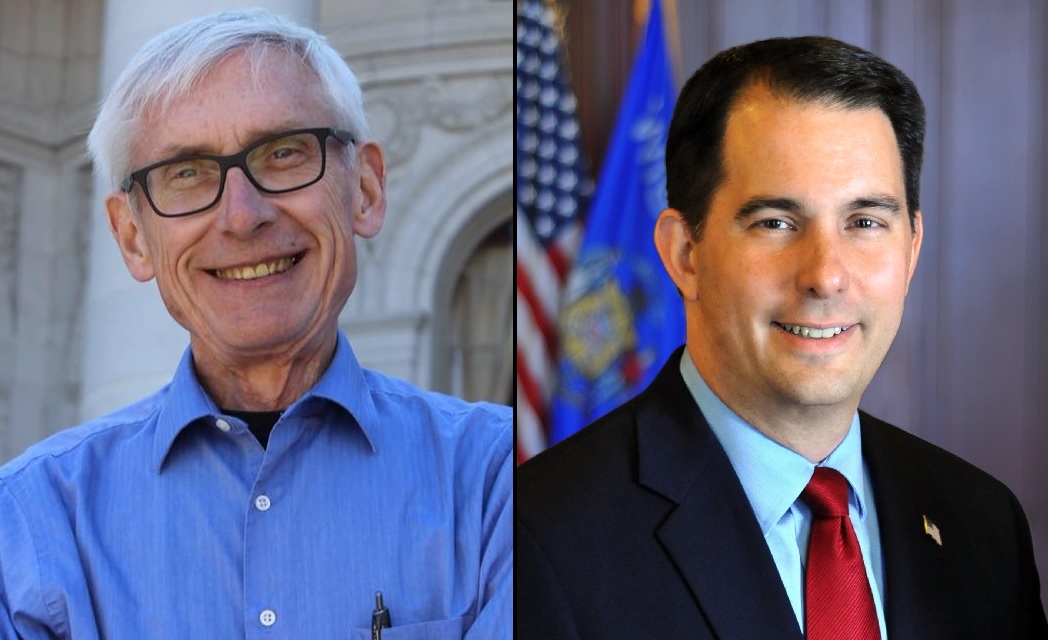Politics
AP FACT CHECK: Wisconsin governor’s veto pen is powerful

Wisconsin Gov. Scott Walker defended lame-duck legislation Tuesday that sparked protests in the state’s Capitol because it would trim some of his successor’s powers. Critics said the Republican-controlled Legislature is ignoring the election result and trying to constrain Gov.-elect Tony Evers from altering some GOP initiatives after he takes office in January.
Evers has appealed to Walker to veto the measures, but the two-term Republican was noncommittal. Walker on Tuesday said he was considering at least a partial veto of the bills, without going into detail.
The Legislature’s bills include proposals that will limit early voting as well as block Evers from altering work requirements for some adults receiving health care through the government and immediately appointing a new chief to the state’s economic development agency.
A look at Walker’s claim, which he made on Facebook:
THE CLAIM: “The new governor will still have some of the strongest powers of any governor in the nation if these bills become law. He will have the power to veto legislation and he will have some of the broadest line-item veto authority of any governor in the nation.”
THE FACTS: Walker is mostly correct.
If Walker signs the lame-duck bills passed by the Republican-controlled Legislature, the governor’s most important powers will remain intact. But in some specific areas, the result of the bills would be to trim Evers’ authority compared with what Walker enjoyed.
Evers will retain what experts describe as Wisconsin’s unusually strong veto power.
All 50 states give governors veto power, according to the National Governors Association. Five states — Indiana, Nevada, North Carolina, Rhode Island and Vermont — do not grant governors a line-item veto. Most states allow governors to cut lines and some allow them to cut specific funding items or partial sentences from spending bills.
But Wisconsin’s governor has the ability to strike individual words and numbers from any spending bill. The governor is also able to replace spending amounts with new figures.
That veto power is unique because it gives the governor the power to change policy, said Miriam Seifter, a professor at the University of Wisconsin Law School.
“The Wisconsin governor does have unusually strong line-item veto authority as set forth in the Wisconsin Constitution,” Seifter said. She noted the Legislature cannot change those veto powers.
Last year, Walker used his partial veto power 99 times to trim the state’s two-year $76 billion budget by $16.5 million . The Legislature can override a partial veto with a two-thirds vote, which has not been done since 1985.
The veto power of the Wisconsin governor is used more frequently under divided government, which will be the case with Democrat Evers facing a Republican Legislature said University of Nevada, Las Vegas political science professor E. Lee Bernick. This will especially be the case because of competing Republican and Democratic priorities over the state budget.
Also, Wisconsin is one of 11 states that do not impose term limits on governors — another sign of a strong executive, said Kris Shields, a professor at the Eagleton Center on the American Governor at Rutgers University.
“That’s something people look at as giving (the governor) a little extra power,” Shields said.
The veto power and unlimited terms don’t make the Wisconsin governor the country’s most powerful state executive, however.
Seifter and Shields both said there are a number of ways to measure a governor’s strength, making it difficult to determine the state with the nation’s strongest executive. A governor’s term limits, veto powers, role in the state budget and ability to appoint government officials are all important factors to quantify the state executive’s authority.
For example, New Jersey’s governor is considered one of the strongest in the country because he has the power to appoint people to roles, such as the attorney general, that are often elected positions in other states, Shields said. In Wisconsin, the secretary of state, attorney general and treasurer are all elected by voters.








Pingback: Walker softens up public for bill signings; Billings critical – WIZM 92.3FM 1410AM